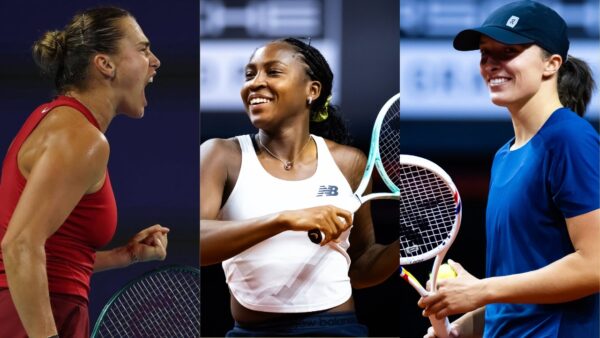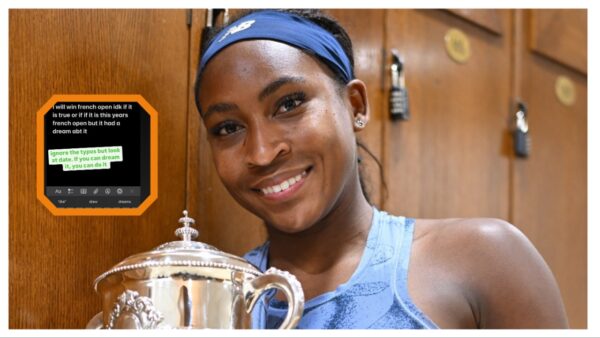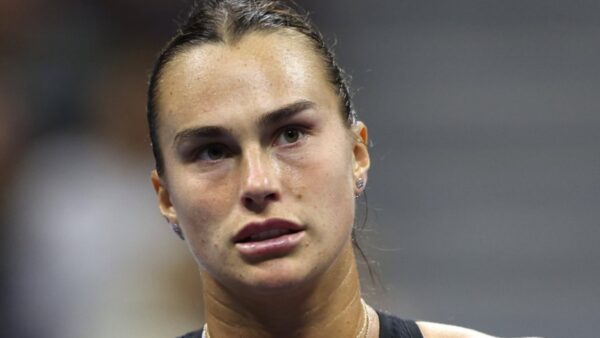Tunnel vision, slogging for hours to attain perfection and the struggle to become the best ensured Abhinav Bindra won a gold medal at the Beijing Olympics exactly this day, 14 years ago

Abhinav Bindra won India's first individual gold at Beijing Olympics
August 11, 2008, will remain etched in the memory for every Indian sporting fan. It does not matter whether you lived in India or abroad, at that time. That one moment, that one gold medal, through Abhinav Bindra in the final at the Beijing Olympics, was unbelievable.
Was it luck or was it a planned effort, more questions emerged than answers, after Bindra won that glittering gold medal. That was for the layman, as few knew about this sport.
I consider myself privileged that just as I had slinked into the Media Tribune to watch Bindra in the final that afternoon, there was a desperate call.Some people from Doordarshan were looking for me as they had none capable of doing live commentary of the shooting final. I was rushed into the TV commentary booth and in a few minutes, I had to go live on air, with mike in hand. There was energy in the air as well as anticipation.
Yet, if you ask me today, after 14 years, I will tell you there was no “gut feel” at that point of time if the Indian legend was going to nail gold. There is a big difference between shooting finals of those days and today. In 2008, the prelim scores plus final scores, to the decimal point, the aggregate, was taken into account to decide the medal winners.
Bindra had an aggregate of 596 plus 104.5 points in the final. It had become certain even before the last set of shots were fired by the other shooters, the Indian was winning gold.
All hell broke loose after that win. But the best part was Bindra himself was boring when he spoke to the media! There was no excitement in his voice or the quotes he gave to the media. Such had been the energy spent in winning that gold medal, he was perhaps exhausted.
Even today, Bindra does not attach too much importance to the gold medal won. He calls it another piece of metal in his drawing room! Beats you, does it? Well, that’s AB for you.
Before the final 10 shots on August 11, 2008, when the “sighter shots” were being taken, Bindra knew something had gone wrong. His weapon (rifle) had been tampered with. There was no exact proof of it but when he was taking aim and squeezing the trigger, his sighter shots were way off the mark. A few clicks of the weapon, and it was huge tension before he could find his rhythm.
And that is why, perhaps, Bindra still says he was lucky to win the medal that day. To be sure, Bindra has been brutally honest when speaking to people about his achievements. If MS Dhoni called building the Indian team a process, Bindra has been no different.
I was fortunate to see him first at the 2000 Sydney Olympics, where he was making his debut. Having gone to the Atlanta Olympics in 1996 as a spectator with his family, Bindra got hooked to the sport. Few would have imagined, four years hence, he was going to be representing the country at the Olympics. In Sydney, Bindra was raw. Winning a medal was out of question.
Also Read | CWG 2022 Squash: James Willstrop, Joelle King win golds in Doubles
14 years of Abhinav Bindra’s Beijing 2008 heroics

Then began the process of working on his game to achieve perfection. Shooting is a sport where the marksman competes with himself. It is not like cricket or hockey, where you are competing with rivals on the field. In shooting, you have to do it all by yourself.
An average shooter spends hours at the range, seeking perfection. Each shot is planned carefully, each moment is one of concentration. And someone like Bindra had to do this over and over again so many times, you would have lost count whether the preparation was tens of thousands of shots being fired or in lakhs.
Frankly speaking, shooting is not a spectator sport at all. Just as boring as being by yourself and training day in and day out, there are so many things which go together. A marksman has to be a superbly fit athlete. It is not like the air gun which you pick up at a mela and fire at the balloons. No, that is at point-blank range and missing it would be bizarre.
The air rifle event is simple and complex at the same time. If the athlete has to be in great shape physically to bear the load, it is a holistic statement. Perfecting the stance, the weapon grip, ensuring your back is strong to cope with the rigours of shooting (look at the stance) and then concentration, all this does not come overnight.
In Bindra’s case, his family was behind his efforts every single day. That the Indian government backed him plus the Mittal Champions Trust (MCT) before 2008 is well known.
All this involved isolation of sorts. For well over 15 years, Bindra’s base was in Germany. It was lonely, cold, and at the same time, eating different food was not easy to adjust. Unless an athlete is completely at peace with his or her surroundings, you cannot perform.
The way an Indian athlete prepares today and what it was during Bindra’s time was so different. In Germany, his coaches were paying attention to the most minute aspects. Apart from the technical aspect, the shooters also had to be in a good frame of mind. These days, when there is so much literature available on mental health and well-being, training for an Olympic medal then was high stress.
Bindra had set punishing schedules for himself. He would shut the world out, literally. There was tunnel vision of Boris Becker proportions. In Bindra’s case, it began close to six months before the Olympics. You had to be inert to the outside world and at the same time be comfortable in your head and heart to go through the process over and over again.
If, in Sydney, Bindra was raw, he had a great chance to win a medal four years later in Athens, 2004. Call it luck, call it fate, the wooden flooring on which he was standing was shaky. He could not get the right balance to stand. In fact, that tile which was so shaky, robbed him of a medal. To be sure, that the Athens Olympics was held was a miracle in itself as preparations for the Games were shaky.
To say that Bindra was broken would be stating the obvious. He could have easily chucked the sport and come back to cushy Chandigarh, where his family lives.
No, this man was not going to accept defeat. He has often said, preparing for Olympics does not begin two years before the Games. It’s a daily process and one has to do the same set of things with the same passion, day in and day out.
Perhaps, when Bindra prepared for the 2008 Olympics, he was most focused. This was kind of make or break. In Gaby Buhlmann, he had a coach who could goad him. Buhlman brought the best out of Bindra, and she owns that medal as much as Bindra.
Sadly for many of us media persons, the joy of him winning a medal in Beijing was more. Even the day after he had won gold, when the Indian ambassador in Beijing, Nirupama Menon Rao came to meet him, Bindra seemed least interested in talking. It was as if winning that gold medal was no big deal!
If we started thinking Bindra was going to produce the same form in 2012 London, four years later, we were wrong. The hunger seemed less and you could not blame him for it.
The heartbreak came again, in 2016, at the Rio Olympics, where Bindra finished fourth. It was that one bad shot, the fourth in the final, which did him in. As promised, Bindra packed his bag, after taking one long look at his rifle, equipment and kit. He flew to Germany, and dumped all the stuff. There was no way he was going to do this all over again.
Recalling Beijing, Bindra wrote last year on a website: “That August day in Beijing will, of course, be etched in my mind forever. My life’s purpose came together in one singular moment, the history, the occasion, but frankly, the thrill lasted maybe for a minute, or even less than a minute. Firstly, I didn’t even care if I’d won a gold medal or not, because my goal was very detached from the outcome. My goal was to shoot 60 competition shots in qualifications and then 10 competition shots in the final and to shoot each shot to the best of my ability. And the real thrill was to actually be able to shoot the 10 best shots of my life when it mattered most.”
Also Read | “Lit the fire in me” – Aussie swimmer Emma McKeon clinched more gold than 56 countries at Birmingham 2022
Do follow us on: Google news | Facebook | Instagram | Twitter







